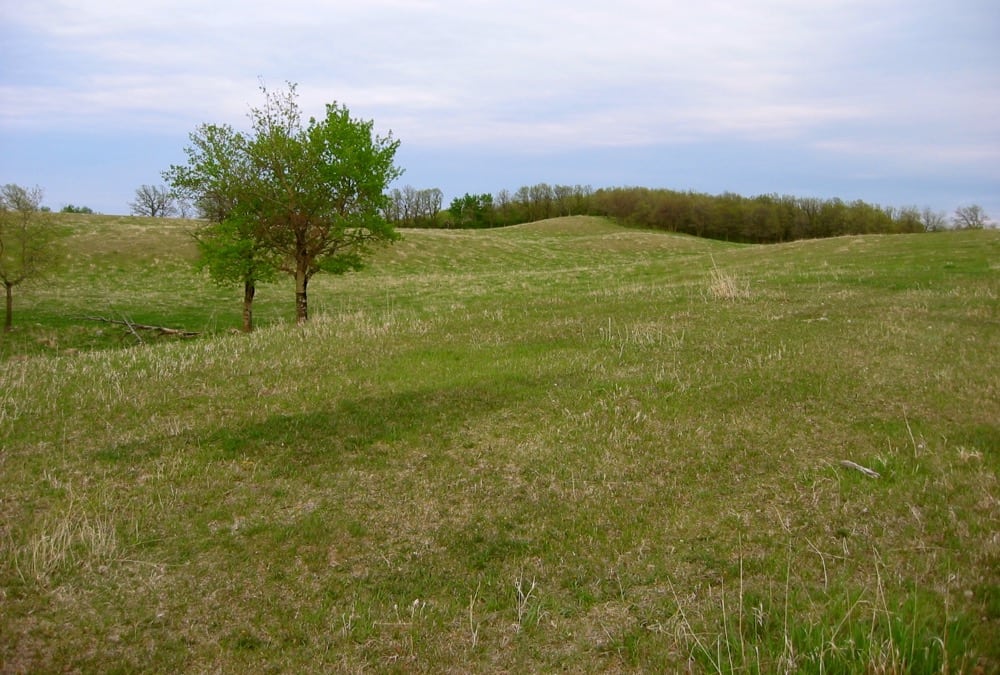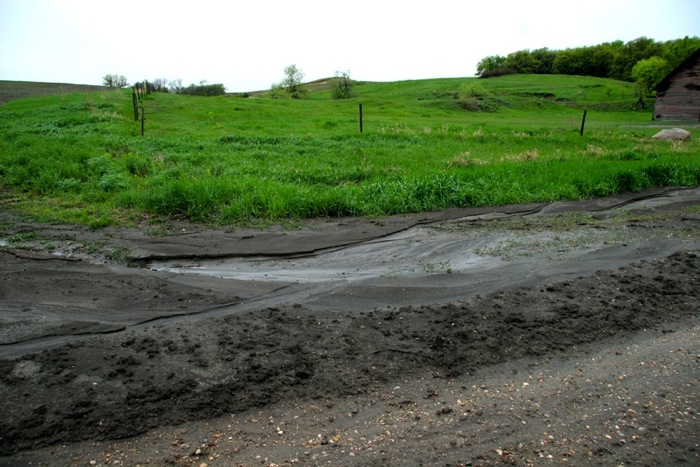“It happens a lot in this country, but when you get two bad years in a row that’s bad.”
– DUNCAN STEWART, REEVE RURAL MUNICIPALITY OF BRENDA
Leaders in Manitoba’s dry southwest hope a second try to get water flowing to farm properties here will be more successful than the last.
Last year’s drought conditions resulted in wells and dugouts drying out for a second consecutive year in the Rural Municipality of Brenda and surrounding municipalities. It has prompted local councils to revisit an idea shelved six years ago – an interconnected water pipeline.
Read Also

Giant Canada geese have gone wild in Manitoba
Giant Canada geese are seemingly everywhere and can be fine table fare for local hunters, but 70 years ago, they were borderline extinct.
Last fall, as in 2003, they again circulated surveys to gauge residents’ support for hooking up. The proposal would draw water from the Oak Lake aquifer, where Melita gets its water.
Those two dry years exacerbated the chronic water shortage in this region and made them think about need for the pipeline again, said R. M. of Brenda Reeve Duncan Stewart.
“It happens a lot in this country but when you get two bad years in a row that’s bad,” he said.
Many must haul water every year, regardless, travelling 10 to 12 miles to get it at municipal pumping stations.
“We think that in this day and age that probably shouldn’t be necessary,” Stewart said.
Medora residents must also be tired of drinking boiled water, he added. Medora has been under a boil water advisory for seven years.
“I’m just amazed that they’re putting up with it so quietly,” Stewart said.
Getting a pipeline in place still looks like the right thing to do, even though the idea tanked in 2003. At that time there was neither money to move it forward, nor enough support from residents to hook up to it.
In Brenda the municipality had to eventually return $40,000 – $1,000 per household – which it had initially collected from residents as a show of support.
Stewart says he’s never quite figured out why people resisted the idea. Some may have feared the cost, but “it isn’t something that is going to cost anybody an inordinate amount.”
The cost of the pipeline, if it went ahead, would be split between Prairie Farm Rehabilitation Administration (PFRA), the province and the municipalities.
A 20-year debenture taken out by municipalities and tied to taxes on land, not landowners, would cover it. Municipal leaders believe the water would increase land and property values. Stewart said municipalities will see whether infrastructure funding recently announced for smaller communities in Manitoba is also available to help with the costs.
The 2008 survey responses from municipalities of Brenda, Arthur and Winchester – no financial contribution was asked for this time – are now with the Manitoba Water Services Board to analyze and map in order to determine whether the pipeline would be feasible. That should be known later this winter.
The town of Melita is also awaiting the survey results, said Melita Mayor Bob Walker.
“We’re fully prepared to supply water if the water is required,” said Walker.















